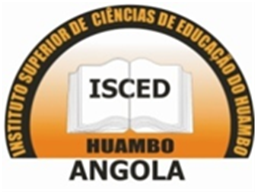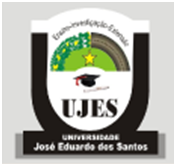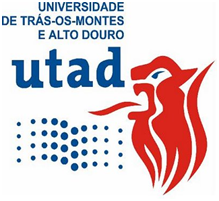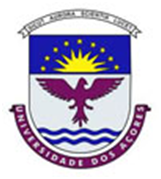The latest issue of Papers in Regional Science is available! Volume 92, Issue 4, November 2013
Papers in Regional Science
© RSAI
Volume 92, Issue 4 Pages 691 - 892, November 2013
The latest issue of Papers in Regional Science is available on Wiley Online Library
ARTICLES
Firm relocations in the Netherlands: Why do firms move, and where do they go? (pages 691–713)
Kristin Kronenberg
Article first published online: 18 JUN 2012 | DOI: 10.1111/j.1435-5957.2012.00443.x
University-industry linkages: What are the determinants of distance in collaborations? (pages 715–739)
Alessandro Muscio
Article first published online: 18 JUN 2012 | DOI: 10.1111/j.1435-5957.2012.00442.x
Regional and company-specific factors for high growth dynamics of ICT companies in Germany with particular emphasis on knowledge spillovers (pages 741–772)
Christian Schröder
Article first published online: 23 OCT 2012 | DOI: 10.1111/j.1435-5957.2012.00457.x
Social capital in industrial districts: Influence of the strength of ties and density of the network on the sense of belonging to the district (pages 773–789)
F. Xavier Molina-Morales, Josep Capó-Vicedo, M. Teresa Martínez-Fernández and Manuel Expósito-Langa
Article first published online: 23 OCT 2012 | DOI: 10.1111/j.1435-5957.2012.00463.x
Footloose: An analysis of the drivers of firm relocations over different distances (pages 791–809)
Anet Weterings and Joris Knoben
Article first published online: 4 JUN 2012 | DOI: 10.1111/j.1435-5957.2012.00440.x
A proposal for detecting spatial contagion: Some evidence on the international migration distribution in Spain (pages 811–829)
María Hierro, Adolfo Maza and José Villaverde
Article first published online: 27 FEB 2013 | DOI: 10.1111/j.1435-5957.2012.00458.x
Trade costs, wage difference, and endogenous growth (pages 831–850)
Akinori Tanaka and Kazuhiro Yamamoto
Article first published online: 30 APR 2012 | DOI: 10.1111/j.1435-5957.2012.00436.x
Models of spatial competition: A critical review (pages 851–871)
Ricardo Biscaia and Isabel Mota
Article first published online: 9 JUL 2012 | DOI: 10.1111/j.1435-5957.2012.00441.x
On Hotelling's ‘stability in competition’ with network externalities and switching costs (pages 873–883)
Luca Lambertini and Raimondello Orsini
Article first published online: 27 FEB 2013 | DOI: 10.1111/j.1435-5957.2012.00469.x
BOOK REVIEWS
Regional Development Agencies: The Next Generation? Networking, Knowledge and Regional Policies. edited by Nicola Bellini , Mike Danson and Henrik Halkier (eds.) Abingdon: Routledge, 2012. 316pp. £100.00. ISBN: 978-0-415-68848-2 (pages 885–887)
Andreas P. Cornett
Article first published online: 12 NOV 2013 | DOI: 10.1111/pirs.12073
Why Growth Matters: How Economic Growth in India Reduced Poverty and the Lessons for other Developing Countries. by Jagdish Bhagwati and Arvind Panagariya. New York: PublicAffairs, 2013. 280pp. US$28.99. ISBN 978-1610392716. (pages 887–889)
Amitrajeet A. Batabyal
Article first published online: 12 NOV 2013 | DOI: 10.1111/pirs.12072
Acknowledgement to Referees
Acknowledgement to referees (pages 891–892)
Article first published online: 12 NOV 2013 | DOI: 10.1111/pirs.12074
The latest issue of Regional Science Policy & Practice is available!
Regional Science Policy & Practice
© RSAI
Volume 5, Issue 4 Pages i - ii, 369 - 490, November 2013
Special Issue: Territorial patterns of innovation: evidence from successful European case studies
The latest issue of Regional Science Policy & Practice is available on Wiley Online Library
Issue Information
Issue Information (pages i–ii)
Article first published online: 6 NOV 2013 | DOI: 10.1111/j.1757-7802.2013.01096.x
EDITORIAL INTRODUCTION
Structural elements and dynamics in territorial patterns of innovation: A perspective through European case studies (pages 369–383)
Andrea Caragliu and Camilla Lenzi
Article first published online: 9 OCT 2013 | DOI: 10.1111/rsp3.12016
ARTICLES
Development dynamics within creative media industries: the case of television and digital media in Wales (pages 385–400)
Selyf Morgan
Article first published online: 9 OCT 2013 | DOI: 10.1111/rsp3.12017
Knowledge creation and knowledge acquisition in the software industry in Slovakia: the case study of Košice region (pages 401–415)
Rudolf Pástor, Miroslav Šipikal and Štefan Rehák
Article first published online: 6 NOV 2013 | DOI: 10.1111/rsp3.12018
Patterns of innovation in the dairy processing sector in South West Wales (pages 417–434)
Selyf Morgan
Article first published online: 9 OCT 2013 | DOI: 10.1111/rsp3.12019
PART II: DYNAMICS OF TERRITORIAL PATTERNS OF INNOVATION
Smart upgrading innovation strategies in a traditional industry: Evidence from the wine production in the province of Arezzo (pages 435–452)
Camilla Lenzi
Article first published online: 9 OCT 2013 | DOI: 10.1111/rsp3.12020
Dynamics of knowledge diffusion: the ICT sector in Lombardy (pages 453–473)
Andrea Caragliu
Article first published online: 9 OCT 2013 | DOI: 10.1111/rsp3.12021
The role of FDIs in regional innovation: Evidence from the automotive industry in Western Slovakia (pages 475–490)
Miroslav Šipikal and Milan Buček
Article first published online: 9 OCT 2013 | DOI: 10.1111/rsp3.12022
Call for papers | Mini conference “Globalisation and New Patterns of Services Sector Driven Growth”, June 19-20, 2014, Amsterdam
CALL FOR PAPERS
International Geographical Union Commission on the Dynamics of Economic Spaces and Regional Science Association International
Mini conference
“Globalisation and New Patterns of Services Sector Driven Growth”
June 19-20, 2014
Amsterdam Institute for Social Science Research
University of Amsterdam
Organizers: Niels Beerepoot, Bart Lambregts, and Jana Kleibert (University of Amsterdam)
Conference Overview
The IGU Commission on the Dynamics of Economic Spaces is partnering with the Regional Science Association International (RSAI) for a joint scientific event aimed at extending international research and scholarship in geography, promoting international collaboration in research activity and the dissemination of research findings, and facilitating the transfer of knowledge, experience and expertise between countries and institutions (http://uac.utoledo.edu/igu_commission/ ). Via the organisation of mini conferences the IGU committee and RSAI aims to bring together small groups of scholars for in-depth discussion on some of the latest issues in the field of economic geography.
The 2014 Amsterdam IGU/RSAI mini conference aims to stimulate discussions on how recent changes in the ways business processes are organized have been reshaping the international division of labour. After drastic shifts in the (spatial) organization of the production of goods, increasingly fierce competition forces firms look critically at how the production of services is organized. Digitization and advances in information and communication technologies enable firms to unbundle service business processes, and the increased global availability of sufficiently skilled labour allows for the relocation of particular business processes around the globe, leading to a new geography of services production. As a result, various Southern cities now command a prominent role as service delivery hubs for the global market. A growing, export-oriented service sector here is commonly understood to generate new employment opportunities for an increasingly well-educated labour force. It is also associated with the formation of a new middle class. Learning fast, multinational services producing enterprises from the global South rapidly expand their global presence, thereby presenting new competition to their Western peers. Simultaneously, patterns are further complicated by the tendency towards regionalization of value chains with production moving back to the firms’ regions of origin.
This conference welcomes contributions that deal with the drivers and the local outcomes (both in the global North and South) of the international reconfiguration of services production. More in particular we invite papers that address the following issues in different empirical and geographical contexts:
• Service sector growth and regional development
• Global production networks in service delivery
• New geographies of service work
• Local labour market impacts of the globalization of services production
• Emergence of Southern cities as hubs for service delivery
• Service work and the rise of a new middle class in developing countries
• The rise of non-Western multinationals in service delivery
• Service outsourcing and offshoring (and re-shoring)
• Linkages and comparisons between the globalization of manufacturing and services production
Abstracts
Abstracts (300 words max.) should be submitted by January 31 2014 to Niels Beerepoot: This email address is being protected from spambots. You need JavaScript enabled to view it.
Papers
Written papers submitted in advance will be circulated among the participants and considered for publication in an edited volume or special issue.
Registration
Deadline for registration is April 1, 2014.
Conference Package
Includes conference dinner, one lunch and conference materials: 75 euro.
A limited number of travel subsidies (of $250,- and $500,-) are available for PhD researchers. Please indicate your interest when submitting your abstract.
Location
This seminar is organised by the Geographies of Globalisation research group of the Amsterdam Institute for Social Science Research and will take place in one of the venues of the University of Amsterdam in the historic centre of Amsterdam.
Extended Deadline-NECTAR-RSAI Session in Bangkok (26-30 May 2014)
Dear NECTAR friends,
Please find enclosed a reminder for the submission of papers to the NECTAR cluster 4 session at at the 10th RSAI World Congress on 27-29 May 2014 in Bangkok, Thailand. The deadline has been extended to 18 November.
Please note that all enquiries should be directed to the session Organizers, by sending an e-mail
toThis email address is being protected from spambots. You need JavaScript enabled to view it.This email address is being protected from spambots. You need JavaScript enabled to view it. or This email address is being protected from spambots. You need JavaScript enabled to view it.This email address is being protected from spambots. You need JavaScript enabled to view it. .
Best regards,
Knut Sandberg Eriksen
NECTAR Secretary
In memoriam Piet Rietveld 1952 – 2013
Call for Papers | Conference on Economics of Climate Change in Southeast Asia
http://www.eepsea.net/ccecon2014
Organized by the Economy and Environment Program for Southeast Asia of WorldFish (EEPSEA-WorldFish)
in partnership with the East Asian Association of Environmental and Resource Economics (EAAERE)
27-28 February 2014, Siem Reap, Cambodia
Southeast Asia is among the most dynamic regions in the world. From a long-term perspective, the economic progress throughout the region has been remarkable, characterized by rapid growth in prosperity and massive reduction in poverty. If this continues, the region’s 600 million population will be one of the wealthiest in the world.
However, climate change threatens this prospect of prosperity. Southeast Asia’s geography, population density, and reliance on natural resource sector make it one of the most vulnerable regions to climate change. Even today, the region's exposure to weather-related hazards has shown how vulnerable this region is to climate change impacts.
Research on the economics of climate change covering areas -- such as climate change impact assessment, evaluation of adaptation and mitigation options, and modeling impacts of alternative climate change scenarios -- are useful in climate change adaptation and mitigation planning. This conference will allow us to assess the landscape of economics of climate change research in Southeast Asia to better understand existing knowledge and research gaps.
EEPSEA, in partnership with EAAERE, is calling for submission of research papers on climate change in Southeast Asia in the following areas:
- Climate change adaptation behaviors/strategies/policies
- Climate change impacts at the macro, regional, local or community level
- Climate change and ecosystem services
- Economic modeling of climate change
- Climate change disaster risk and insurance market in Southeast Asia
- Climate change mitigation
Selected papers from this conference will be published in a special issue of the Environmental Economics and Policy Studies (EEPS), a journal of the EAAERE. Some of the papers will be selected as contributed chapters in an edited book.
Partial support to attend the conference is available for researchers from the Southeast Asian countries. Request for funding support must be indicated during submission.
How to submit
Papers for the conference should be submitted to the following email address: This email address is being protected from spambots. You need JavaScript enabled to view it.This email address is being protected from spambots. You need JavaScript enabled to view it.. Please indicate “EEPSEA Economics of CC Conference” in the subject line. Only those whose abstracts have been accepted will be notified on 15 December 2013. For additional queries, please contact Ms. Julienne V. Bariuan, EEPSEA Communication Manager < This email address is being protected from spambots. You need JavaScript enabled to view it.This email address is being protected from spambots. You need JavaScript enabled to view it.>.
RSAI Newsletter November 2013 is now online!
Dear all,
The new RSAI Newsletter November 2013 can now be found under
http://regionalscience.org/images/PDF/Newsletter%202013%20November.pdf
Postgraduate Course “Decision Support Methods on Territorial Policies”, 12-17 December 2013, Huambo, Angola
Program
|
Day |
Topic |
Professor |
|
|
12 Dec. |
Choice Experiment Method |
Lívia Madureira |
|
|
13 Dec. |
Factorial Design, Data Collection |
Lívia Madureira |
|
|
14 Dec. |
Spatial interaction model of land use for Hedonic Evaluation of Territorial Policies |
Tomaz Dentinho |
|
|
16 Dec. |
Treatment of Data |
Lívia Madureira |
|
|
17 Dec. |
Interpretation of Results |
Lívia Madureira |
Professores
Prof. Dr. Lívia Madureira, University of Trás-os-Montes e Alto Douro, Portugal
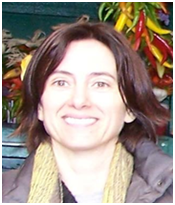
PhD in Agricultural Economics and Assistant Professor at the University of Trás-os- Montes e Alto Douro. Researcher effective CETRAD Center ( Transdisciplinary Studies for Development). Expert on economic valuation of environmental public goods and externalities. She has participated in interdisciplinary research projects and has extensive experience in European research projects under FP6 and FP7 programs and research networks such as COST E45. Its activities also include teaching in the area of economics and economics and management of the environment and sustainability, guidance of master's and doctoral students, organization and teaching of doctoral seminars and consulting activity in the context of environmental impact studies. She is currently coordinating a study for the Joint Research Centre of the EU in the field of environmental enhancement and two projects with national funding in the areas of economics of ecosystem services and innovation in rural areas.
Prof. Dr. Tomaz Dentinho, University of Azores, Portugal
 Tomaz Ponce Dentinho holds a PhD in Regional Economics from the University of Newcastle (1994), and is a lecturer at the University of the Azores. His teaching and research have focused on the topics of regional science, environmental economics and agricultural economics. Coordinates research and postgraduate teaching in Regional Sustainable Development, with projects and works on integrated water management, renewable energy, management and spatial planning, land farming systems, economic valuation of environmental resources and operational models economic - environmental. It has done work on cooperation with Angola, Timor, Guinea-Bissau, São Tomé and Cape Verde. Since 2008, he is president of the Portuguese Association for Regional Development (www.apdr.pt). And since 2011, is the Executive Director of the Regional Science Association International (www.regionalscience.org). Parte inferior do formulário
Tomaz Ponce Dentinho holds a PhD in Regional Economics from the University of Newcastle (1994), and is a lecturer at the University of the Azores. His teaching and research have focused on the topics of regional science, environmental economics and agricultural economics. Coordinates research and postgraduate teaching in Regional Sustainable Development, with projects and works on integrated water management, renewable energy, management and spatial planning, land farming systems, economic valuation of environmental resources and operational models economic - environmental. It has done work on cooperation with Angola, Timor, Guinea-Bissau, São Tomé and Cape Verde. Since 2008, he is president of the Portuguese Association for Regional Development (www.apdr.pt). And since 2011, is the Executive Director of the Regional Science Association International (www.regionalscience.org). Parte inferior do formulário
Applications
You can send your application or request information directly to Tomaz Dentinho, This email address is being protected from spambots. You need JavaScript enabled to view it.This email address is being protected from spambots. You need JavaScript enabled to view it., if you do not live in Angola or to Caesar Pakissi, This email address is being protected from spambots. You need JavaScript enabled to view it.This email address is being protected from spambots. You need JavaScript enabled to view it., if you live in Angola.
Fee
150US$
Venue
The Higher Institute of Education Sciences (ISCED) of Huambo, Angola
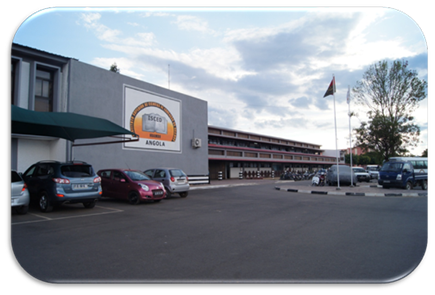
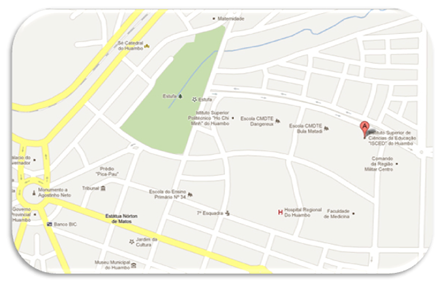
Organization and Sponsors
SEE IN PORTUGUESE (pdf)
Call for papers | 10th World Congress of the RSAI, May 26-30, 2014, Bangkok, Thailand

The Regional Science Association International (RSAI) invites regional scientists, policy makers and researchers of related disciplines to participate in the 10th World Congress. The Congress will be hosted by the Faculty of Architecture and Planning, Thammasat University, Bangkok. It will be held at the Imperial Queen’s Park Hotel in Bangkok, Thailand, May 26-30, 2014 on the theme of
Socioeconomic Integration and Transformation: Reshaping Local, Regional, and Global Spaces
The Congress will feature several world-renowned keynote speakers on cutting-edge urban and regional science and policy issues, expert panels, research presentations and posters. It will be attended by 500 delegates from the worldwide community of regional scientists.
Research topics related to the theme of the congress are particularly welcome, but the conference will be open to other topics within the broader contours of the regional science, urban and regional studies, geographical sciences and planning, and development. Anticipated sub-themes of the congress include the following:
-
Emerging challenges for regional development
- Vision and management of sustainable cities
- Energy, development, and sustainability
- Rural and local development
- Accessibility, infrastructure and regional economic growth
- Social capital and regional development
- Agglomeration, clusters, congestion and policy
- Crisis of public finances, governance and regional development
- Globalization and regional competitiveness
- Cross-border cooperation and developmentMigration, cultural networks and regional development
- Foreign direct investmentSocial segregation, poverty and social policy
- Spatial labor marketsClimate change and sustainable regional development
- Entrepreneurship, networks and innovationInnovation, knowledge economy and regional development
- Geographical information science and spatial analysis
- Spatial econometrics
- New frontiers in regional science: theory and methodology
- Infrastructure, transportation and communication
- Land use, real estate and housing markets
- Facility location modeling
- Tourism, cultural industries and regional development
- Urban governance and cities regeneration
- The computable city
- City systems and systems of cities
- Spatial organization and social media
- Territorial marketing
- Advances in I-O and CGE modeling
- Food security
- Global cities
- Southeast Asian regional economic integration
- Politics, ethnicity, and empowerment
We invite formal paper presentations as well as posters (deadline of December 1st, 2013). Organizers of special session are also welcome. The abstract submission portal is now open, along with the congress registration system. Full information on the venue, abstract submission, registration, schedule of events, accommodation and travel information is posted at http://www.2014worldcongress.regionalscience.org. Delegates will soon be able to register for workshops and tutorials.
Publication opportunities will be available for papers accepted by the Program Committee. We plan to edits volume in the new book series published by Springer on New Frontiers in Regional Science: Asian Perspectives. All manuscript submitted for possible publication in this series will be subjected to the customary peer-review process. Also, a select number of manuscripts will be invited for publication in the international RSAI Journals Papers in Regional Science andRegional Science Policy and Practice.
Feel free to contact the secretariat of the Congress at This email address is being protected from spambots. You need JavaScript enabled to view it.This email address is being protected from spambots. You need JavaScript enabled to view it. for further information. We look forward to welcoming you in the dazzling city of Bangkok in May 2014.
Jean-Claude Thill, RSAI President
Tomaz Dentinho, RSAI Executive Director
Job Position | Assistant Professor Housing and Real Estate Markets at the University of Groningen
Assistant Professor Housing and Real Estate Markets (1,0 fte) (213213)
Organisation
The Faculty of Spatial Sciences at the University of Groningen (RUG) consists of 85 members of staff and focuses on high quality teaching and research in the fields of real estate, economic and cultural geography, spatial planning and demography. The Faculty is responsible for the Bachelor Geography and Planning. The Assistant Professor's research and teaching will be related to two departments in the Faculty.
The Department of Economic Geography has a research agenda which centers on issues like real estate, regional labour markets, regional development, entrepreneurship and innovation. The Department is responsible for the Master of Economic Geography and the Master of Real Estate Studies. The research of the Department of Demography / Population Research Centre is carried out within the broad theme 'Population and Well-Being in Context'. The Department is responsible for the Master Population Studies.
Job description
The Assistant Professor will contribute to research and teaching in the Faculty of Spatial Sciences. The main research focus is on the quantitative analysis of housing and real estate markets, project development and/or financing also in a comparative context between countries, and the behaviour of individuals and households within these markets in the sense of residential mobility and transitions between housing types or tenures. Housing and real estate markets are shaped by the dynamics of where households and firms locate and relocate and relates to issues like population decline, aging, well-being, household formation and dissolution, regional economic development, infrastructure, landscape and environment and real estate markets itself. All these issues are present in the faculty research theme Towards Well-being, Innovation and Spatial Transformation (tWIST) and it is expected that the Assistant Professor contributes to overarching research themes in t(WIST) from the perspective of housing and real estate markets with the explicit goal of stimulating multidisciplinary publications and research proposals.
The Assistant Professor's main teaching task will be in courses in the Master Real Estate Studies and in the Master Population Studies. The Assistant Professor will invest 60% of his/her time in research, and another 40% in teaching.
Qualifications
We are looking for candidates who meet the following requirements:
- PhD in Real Estate, Economics, Finance, Economic Geography, or Demography
- publications in international peer-reviewed academic journals in the field of quantitative research on housing
- commitment to excellent teaching
- has a strong drive to share ideas with, and to invest in colleagues and students
- meets the obligatory requirement for the Basic Teaching Qualification (BKO)
- fluent in English; mastering Dutch or willing to learn Dutch.
Competences of an Assistant Professor:
- conceptual ability
- self-reflection
- presentation
- result orientation.
- Conditions of employment
The University of Groningen offers a salary dependent on qualifications and relevant work experience up with a minimum of € 2,919 gross per month (scale 10) to a maximum of € 5,070 gross per month (scale 12) for a full-time position excluding 8% holiday allowance and 8.3% end-of-year bonus and participation in a pension scheme for employees. Favorable tax agreements may apply to non-Dutch applicants. The conditions of employment comply with the Collective Labour Agreement for the University of Groningen. The full time appointment is temporary for a specified period of three years, the appraisal interview is at the end of the first year.
Starting date: as soon as possible.
The first interviews will take place on 22 November 2013 and 28 November 2013. Selected candidates will receive an invitation after 11 November 2013.
Application
You may apply for this position before 1 November 2013 Dutch local time by means of the application form (click on "Apply" below on the advertisement on the university website). Applications must include curriculum vitae, two letters of recommendation, one current working paper, and any available teaching evaluations.
Acquisition is not appreciated.
Information
For information you can contact:
Prof. A.J. van der Vlist, Professor Real Estate, +31 50 3633897, This email address is being protected from spambots. You need JavaScript enabled to view it.This email address is being protected from spambots. You need JavaScript enabled to view it.
Prof. C.H. Mulder, Professor Demography, +31 50 3634549, This email address is being protected from spambots. You need JavaScript enabled to view it.This email address is being protected from spambots. You need JavaScript enabled to view it.
About Us
The Regional Science Association International (RSAI), founded in 1954, is an international community of scholars interested in the regional impacts of national or global processes of economic and social change.

